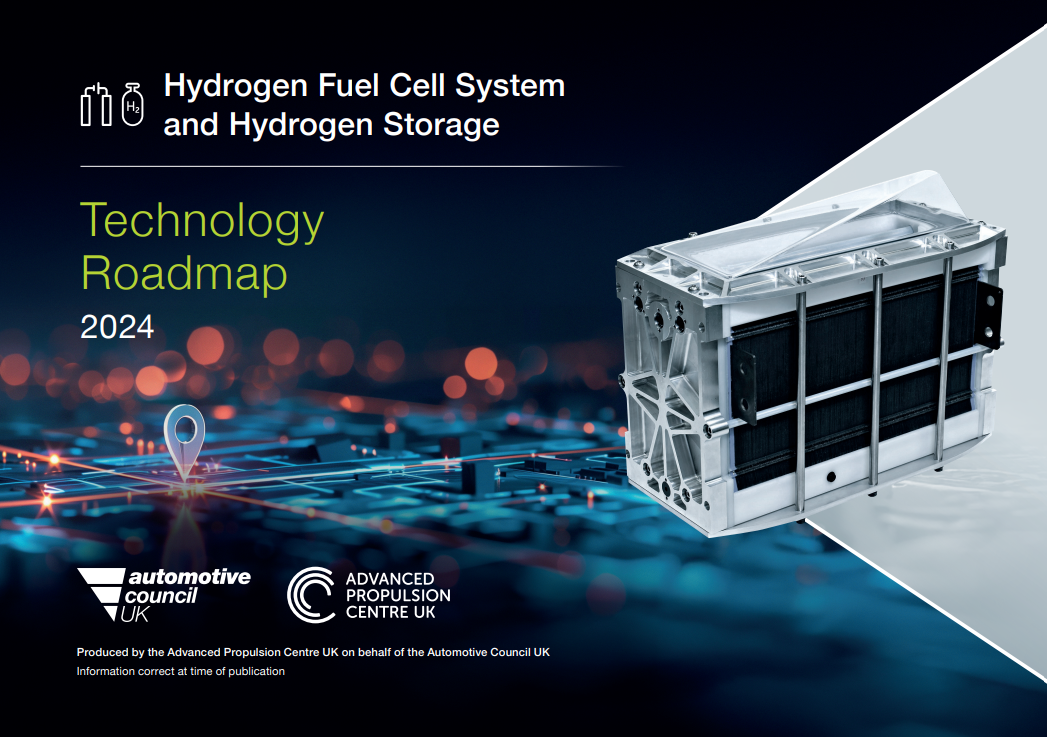Transport and mobility sectors increasingly look to hydrogen
- Hydrogen to play an important part in the automotive sector’s future decarbonisation plans
- Sustainability a key focus with reuse, remanufacture and recycling high on the agenda
- Several hurdles still need to be overcome before we see widespread adoption
Lifecycle and sustainability, as well as system-cost and efficiency, will be key themes discussed on the UK Government pavilion, hosted by the Advanced Propulsion Centre UK (APC), at this week’s Hydrogen Technology Expo Europe in Hamburg, Germany.
The exhibition and conference opens on the 23rd of October and times perfectly with the recent launch of the Hydrogen Fuel Cell System and Hydrogen Storage Roadmap, which details key themes, challenges and policies for the automotive industry looking ahead to 2040.
The newly launched Roadmap has been compiled with input from 436 experts from industry, government and academia and has been produced by the APC on behalf of the Automotive Council.
Hydrogen has long been recognised as one of the key solutions to decarbonisation and the Roadmap plays an important role in helping to set out the next steps for the automotive industry and its supporting sectors.
Developments in both system design and storage have advanced rapidly over recent years, fuelled by increasing interest from not only automotive manufacturers, but the aviation, rail and maritime sectors too.
Julian Hetherington, Automotive Transformation Director at the APC, said:
“Understanding what’s next for fuel-cell systems and hydrogen storage will be of particular interest to building future strategies within the automotive industry. The roadmaps are a valuable tool for anyone working in the sector – from the supply chain through to policymakers.
“We know sustainability will be key for any technology in the industry. Reduced or zero-tailpipe emissions is not enough to satisfy sustainability criteria. The full lifecycle of fuel cells will come into question; for example, how components are manufactured, what processes and energy are used, and how easily can they be disassembled for reuse, recycle, or remanufacture. Policy and regulation will dictate how quickly fully sustainable products will come to market, but we are seeing savvy automakers already aligning their processes and supply chains to be ready.”
However, some challenges still need to be addressed before there is more widespread adoption. Regulation is set to impact the current use of fluoropolymers in hydrogen fuel cells, triggering the developments of potential alternatives along with appropriate materials recovery and recycling techniques.
Hydrogen storage focuses on the costs and challenges of developing suitable tank materials to store fuel onboard a vehicle as well as designing pressure regulators that will enable the pressure needed for the automotive sector, not just to supply fuel cells but also hydrogen-powered internal combustion engines.
With the impact of digitalisation methods, including artificial intelligence and machine learning, the Roadmap predicts there will be a wave of innovation, with solutions being introduced and designed to support the mass adoption of new technologies.
Dr Hadi Moztarzadeh, Head of Technology Trends at the APC adds:
“The roadmaps are consensus documents and have been developed based on expert experience and understanding of the current landscape, past successes and failures, as well as in-depth knowledge of forthcoming policy and regulation. This has meant we have been able to compile a detailed look at the development of future pathways, but we also know there are likely to be obstacles we cannot foresee.
“They provide a valuable resource for our industry as we collectively look to strengthen end-to-end sustainability for auto products and services, building resilience in the sector’s supply chain to encourage widespread adoption of clean technologies, making them more affordable for the consumer and supporting the ambitions of becoming net zero.”
The 2024 version is the third iteration of the technology Roadmap. In this most recent edition, the system design is reviewed separately to hydrogen storage, with each topic having its own dedicated section within the report.
Read the Hydrogen Fuel Cell System and Hydrogen Storage Roadmap and supporting narrative report here: Hydrogen Fuel Cell System and Hydrogen Storage – Advanced Propulsion Centre (apcuk.co.uk)
